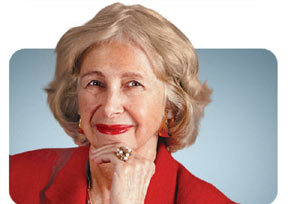WASHINGTON -- While the Middle East and Eurasia are dominated by violent scenarios that change by the minute, Asia has been largely quiet, except for the Chinese military's "your island is my island" attempts to gulp down all the small islands in the South China Sea.
With Japan still bound by the post-World War II constitutional prohibition against an active military in the region, one can sit back and relive the scene aboard the U.S.S. Missouri on Sept. 2, 1945, when Supreme Commander Douglas MacArthur accepted the immensely dignified unconditional surrender of the Japanese in their black satin top hats.
It was one great moment of recent history in which dignity abounded on all sides.
Analysts of the era were in no mood to waste any time on fears that Japan would fight again in the Pacific, for the constitution adopted by the new Japan in 1947 renounced the nation's power to wage war -- or even to have a military capable of doing so. It would have a self-defense force, and American soldiers, based in Japan, would defend the island nation, while Japan became rich and accomplished.
Fast-forward now to this winter. Japan's Prime Minister Shinzo Abe had just announced a gift of $200 million in humanitarian aid for refugees caught in the Middle Eastern violence -- the latest step toward a more prominent international role for Japan -- when two innocent Japanese men, Haruna Yukawa and Kenji Goto, were brutally murdered by the Islamic State in Syria. The ransom? An ironic $200 million.
The Japanese people were enraged, and Japan began swiftly coming out of its isolation. To underline the possibilities of Japan's historic union with the United States, the prime minister will visit Washington sometime this spring to talk it all out with President Obama.
But Prime Minister Abe had already shown what a modern-day leader could do. In recognition of the new international environment, he and his supporters call for Japan to become, 70 years after the war, a "normal nation."
By this, they mean, writes Japan specialist Kevin M. Doak in the Georgetown Journal of International Affairs, "that Japan should have not only full autonomy over its foreign affairs, but also a military that operates no differently from that of any other major democratic country, much like Germany and France."
For the Americans, who have served in a kind of mentor's role to the Japanese since that day on the U.S.S. Missouri, this is just fine. It means greater interoperability, sharing the same threat assessment, making it immeasurably more difficult for China to drive a wedge between the U.S. and Japan. And, of course, should China make a real attempt to take the small islands in the South China Sea, where Beijing is already building new islands by reinforcing sand bars (for oil?), Japan would be coupled now with America.
"Japan's new program to allow its self-defense forces take on greater responsibility is being debated in Japan, but it is fully supported by the United States, and for good reason," Adm. Robert J. Natter, retired commander of the Seventh Fleet, wrote recently in the Huffington Post. "An increased Japanese defense posture greatly strengthens security and the prospects for peace in the Asia-Pacific region....
"U.S. forces, particularly the Navy's Seventh Fleet, headquartered in Yokosuka, will be prime beneficiaries of a new Japanese defense policy, this at a time when our special relationship with Japan grows even more crucial."
"Abe has brought postwar Japan to a watershed moment," Doak writes. "Will Japanese society accept his challenge, shed the ... culture of comfort, and accept the costs of their responsibilities to the global community? Or will the brutal murder of Yukawa and Goto drive home the painful costs of engaging in the global War on Terror and lead the country to withdraw from global commitments?"
It is not that Shinzo Abe is without problems -- or enemies. He has North Korea, with its burgeoning nuclear threat, to his back. He has a China just down the road that still hates Japan for its role in World War II. And he has, as his most serious political competitor, a man as strange to Japan as would be Saddam Hussein.
That competitor is Ichiro Ozawa and his People's Life Party. Ozawa is often described as the "most dangerous politician in Japan." Strangely enough, after Abe was so enraged by the murders of the two Japanese by the Islamic State that he grew more pro-military, Ozawa attempted instead to unite the country in a new "pan-Asianism" around China. He has said that Christianity is an intolerant religion and taken a sympathetic attitude toward the Islamic State terrorists. Some of his followers have even compared the present-day ISIS terrorists to kamikaze pilots of World War II.
So, Prime Minister Abe has his work cut out for him. Japan could go his way -- a modern way -- or it could dig deep into the darker parts of its warlike past. Let's hope his visit here with President Obama will clarify and strengthen this healthy new unity for both men and both countries.
Previously:
• 01/21/15: Rumors of a new Cold War have real roots in history
• 01/21/15: It's time to be practical about multiculturalism
• 01/07/15: Tension mounts against Muslim immigration in the West
Comment by clicking here.
Georgie Anne Geyer has been a foreign correspondent and commentator on international affairs for more than 40 years.



 Contact The Editor
Contact The Editor
 Articles By This Author
Articles By This Author